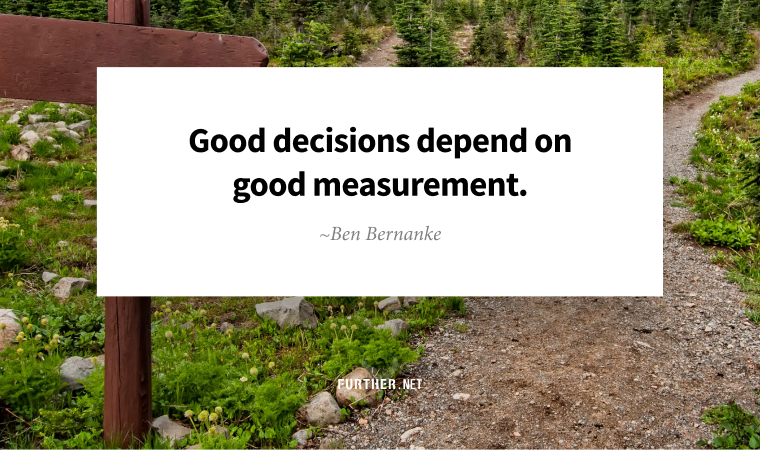
If you’re like me and 42% of American adults, one of the pandemic’s many downsides was “unwanted weight gain.” (Damn you, Great British Baking Show!) Given that obesity is a top risk factor for severe COVID-19 and takes a toll on healthspan, I finally got a grip by going back to the basics.
By logging my food and exercise, I quickly realized where I went astray and how to get back on track. Four months later, and I’m at my pre-pandemic weight and feeling much healthier overall.
Turns out there’s a psychological angle to using measurement to induce improvement. If you want to accomplish more, you’ve got to keep score.
The Scoreboard Principle
Benjamin Franklin wasn’t always the hero and iconic innovator he’s remembered being. In his early 20s, he was a heavy drinker, inveterate gossiper, and all-around randy guy. Franklin came up with a list of 13 virtues (i.e., temperance, silence, chastity) to counteract his bad habits and tracked his adherence to those standards in a daily journal. Clearly, his hard work paid off.
Franklin’s practice embodies the Scoreboard Principle, based on the idea that humans naturally pay more attention when a score is kept.
When we see our numbers surge, progress feels tangible, sparking satisfaction and pride. In contrast, seeing our metrics plummet generates disappointment, frustration, even shame. These emotional jolts are not trivial. They lend our actions psychic weight, leading us to work harder in pursuit of a higher score.
We humans respond to measurements because we’re wired with a number instinct. Our ancestors needed that sense to tell the difference between a lot of food and not enough— ensuring they pursued things that maximized their survival.
Today we’ve evolved somewhat, but we can still harness that numerically driven sense to improve performance and outcomes in all kinds of scenarios.
Fast-Track Your Progress
While tracking calories and workouts with an app is simple, it’s a bit more complex to quantify skills and goals for less tangible areas of improvement. Social scientist Ron Friedman Ph.D. recommends three approaches:
- Break a single activity into multiple subskills, and measure each task individually. For example, a presentation can be graded on content, memorization, and delivery.
- Critique your performance of a single skill. Tie metrics to the features of that one action. For example, if you want to write better memos, you can grade yourself on how well you grabbed attention, delivered facts, and ended strong.
- Take a holistic approach, assessing your ongoing performance according to standards you set. Logging progress is what Franklin did so effectively.
Self-improvement is personal, so others aren’t likely keeping score. But if you want to be the best version of yourself, maybe you should.
How to Benefit from the Scoreboard Principle (Psychology Today)
